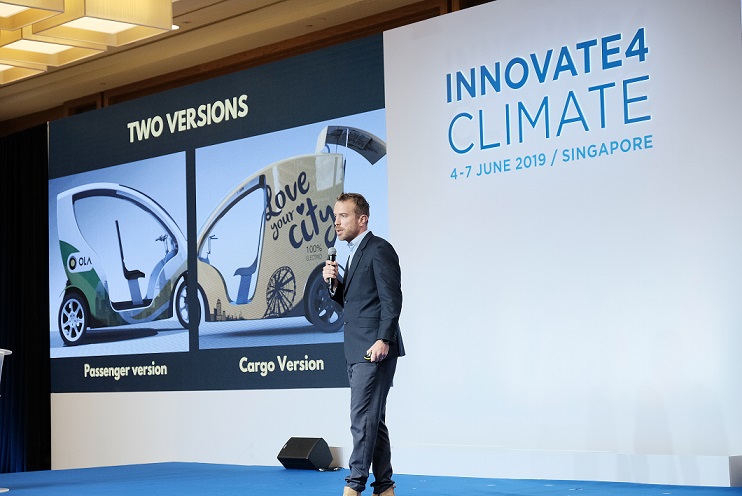The Green for Growth Fund (GGF) aims to enhance energy and resource efficiency as well as foster renewable energy in the Southeast Europe Region including Turkey, the European Neighborhood Region-East, and the Middle East and North Africa (MENA). This is achieved predominantly by providing dedicated financing to businesses and households through partner financial institutions and through direct financing of eligible projects.
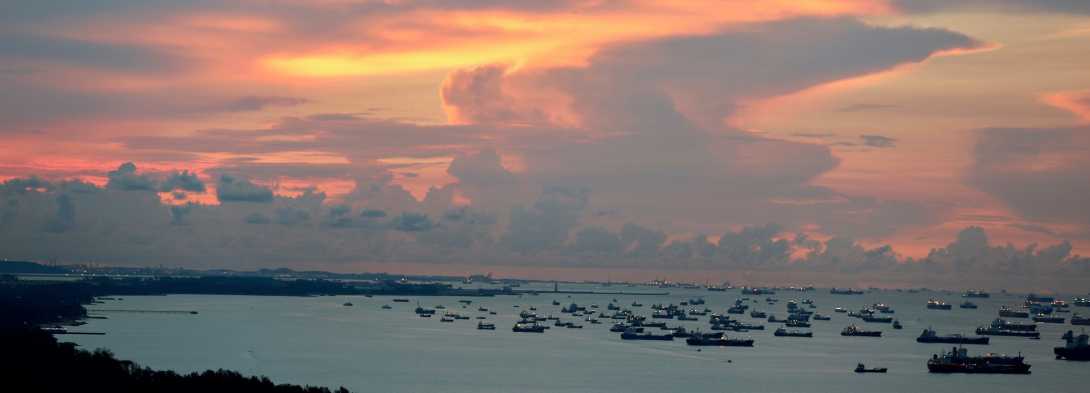
On June 4, the World Bank Group's third Innovate4Climate (I4C) global conference convened in Singapore for honest discussions of climate finance and investment markets. Innovate4Climate is an annual opportunity for leaders of all sectors to come together and accelerate action on climate finance, technology and development.
As part of the Connect4Climate #YouthTakeover initiative, I and four other students from Nanyang Technological University's Wee Kim Wee School of Communication and Information were invited to manage C4C's social media channels to share the details of our educational journey throughout the conference.
It was an inspiring experience for us to get the rare chance to listen to financial experts explain market mechanisms that would drive the climate investment market. As communications majors, we were brought in to learn about the economic drivers and influences that hold the potential to greatly ease mankind's transition into a climate-friendly world.
Before the main conference began, our team participated in a climate change journalism workshop, where journalists from all around the region came together to discuss the skills involved in reporting on climate impacts and solutions. The workshop explored the many ways that journalists today can report, highlighting the strengths and weaknesses of different mediums such as photography, informative videos and writing. Many experts were also brought in to share their thoughts on the effectiveness of communications in the digital sphere, and to educate us on the intricacies of the climate disaster that we would need to take to heart.
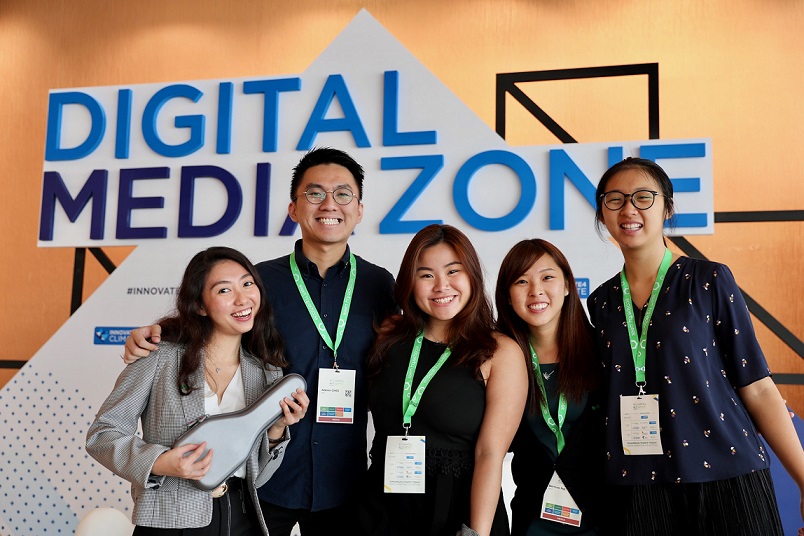
By getting the chance to interact with prominent journalists from all around the region, we also learned that every country has unique challenges with the social psychology of their target audience. We thus took the opportunity to pool our knowledge and trade media ideas within the group, diffusing important information like data and academic research that could greatly benefit the efficiency of future international communications efforts.
On the first day of Innovate4Climate, the team split up to cover various plenaries from distinguished speakers of the climate finance industry. Mr. Vivek Pathak, regional director for the IFC in East Asia and the Pacific, marked the start of the conference with a rousing and humorous speech highlighting the first signs of imminent change—and expressing his approval of the lack of plastic at the conference.
Throughout the few days of the conference, we went through several important plenary topics such as the plastic revolution, development of green bonds in Asia Pacific, catastrophe bonds and the commercialization of clean tech. Although some of the topics were very niche, we were able to pick up vital points from the speakers that helped us understand key foundational links among various economic stakeholders and private-public partnerships.
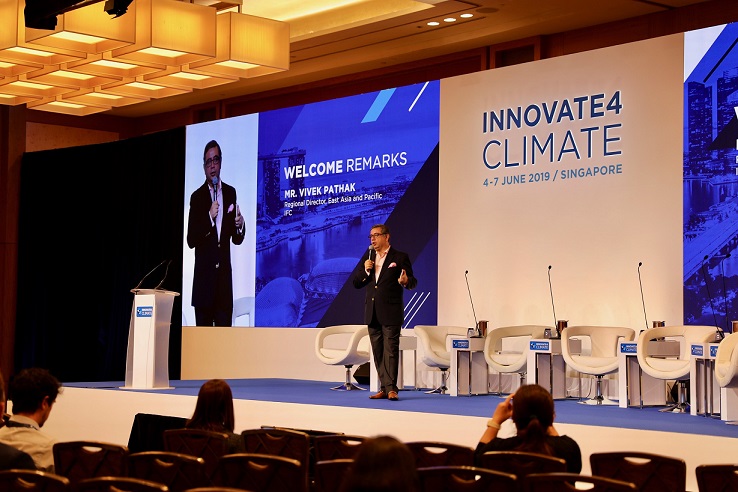
The end of Innovate4Climate was marked by an exciting innovation pitch competition. We got an exclusive front-row view of the five finalists' pitch presentations: each of their ideas had immense potential to change current structures in the agricultural, transport and architectural industries and foster a greener future.
The pitch hub contestants flew in from all over the world and were brimming with confidence and determination to achieve their goals. It was heartening to see how small-medium enterprises were considered a key part of the innovation process and were given an opportunity to fulfill their potential on the world stage.
We are honored to have been a part of Connect4Climate's #YouthTakeover, a brilliant initiative that brings young people into the climate conversation and that offered us a deeper look into the mechanisms that will shape our future. Throughout our journey, the team regularly had to brainstorm collectively on our social media strategies, as we were tasked with understanding complex financial knowledge and simplifying it for our youthful audience.
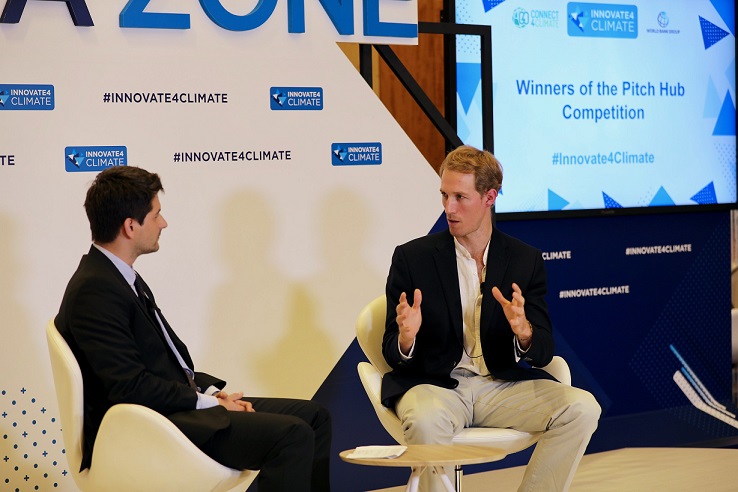
It was a great chance for us to identify challenges in traditional reporting from mainstream media while actively honing our own lexicons and skill sets to be able to connect more efficiently to the youths we represent.
Michael Grimm, CEO of Carbon Negative, delivered perhaps the most memorable quote of the event for us. He was on hand in the journalist workshop to explain fully the frightening scenarios and consequences that are to come, but he found a silver lining in the fact that we will all need to band together if we are to successfully save our planet.
"Climate change will not see nationality, race or socioeconomic statuses. It will affect us all, but I am positive we can beat this."
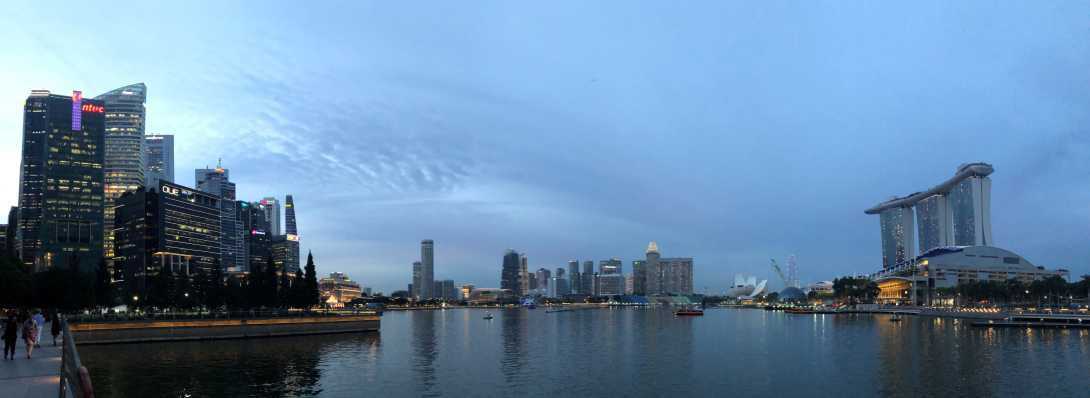
Innovate4Climate 2019 saw hundreds of climate leaders congregate in Singapore to hash out knotty green finance issues and brainstorm about the road to global sustainable living. In addition to veteran eco-advocates, though, the organizers of Innovate4Climate were sure to highlight the achievements of younger people and up-and-comers in the movement. One of the most exciting examples of this was the Pitch Hub Competition, in which hundreds of teams representing groundbreaking green start-ups submitted concepts to a panel of discerning judges. Of an initial 239 high-quality entries from teams spanning 81 countries, the judges selected 5 finalists to pitch their ideas live in Singapore for a chance to win thousands of Amazon Web Services dollars to infuse into their businesses.
The Wastezon team, who "envision a waste-free world," delivered a pitch on a mobile app that would allow its users to interface directly with the recycling industry, enabling them to regiment their consumption and disposal much more effectively and to be active participants in a circular, waste-free economy. The app was also built to be of use to manufacturers, who can capitalize on its blockchain features to get discarded products recycled and back in consumer hands much more efficiently. Everybody wins.
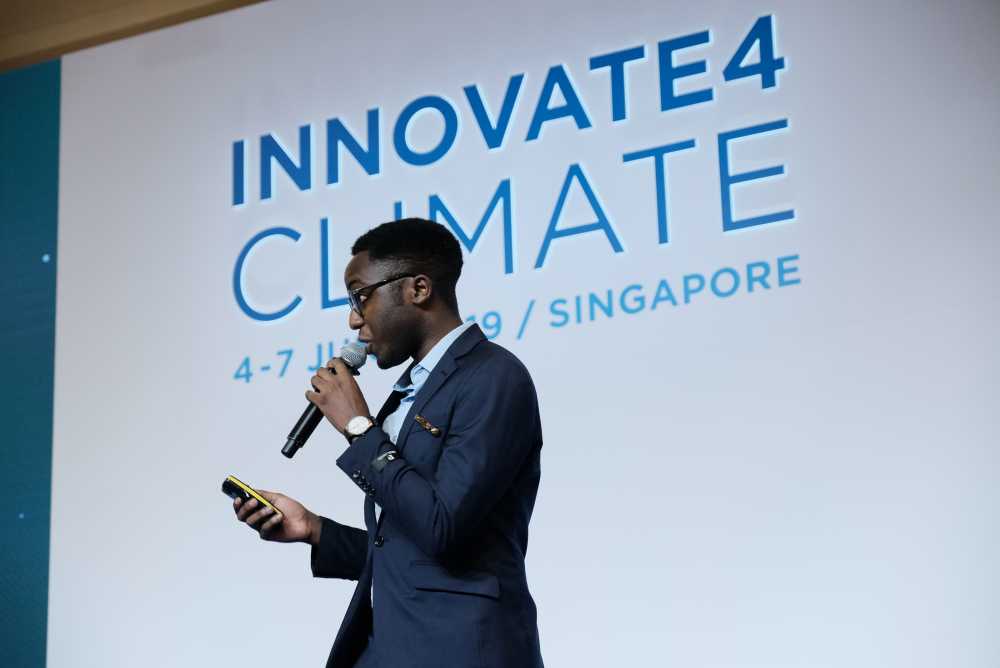
Positive Energy Ltd. centered its presentation on renewable energy, pushing for a "drastic shift from large fossil fuel infrastructure to smaller solar and wind distributed assets." Seeking to help people passionate about sustainable energy avoid the usual discouraging inefficiencies of non-specialized investors and local banks, Positive Energy offers a blockchain-driven service that pairs project developers with investors free of middle men in a secure digital environment.
Mellowcabs, which earned the third-place spot on the Pitch Hub podium, shared its concept of a fully electric minicab taxi service that urban travelers could enlist at will via a dedicated mobile app. Specifically, Mellowcabs wants to cut back on the substantial carbon emissions arising from short-range trips in trafficky city conditions. The app will be tapped in to public transit options as well to give users the most efficient, pleasant, and eco-friendly trips possible, and the sides of the taxis will be emblazoned with advertising from green-minded sponsor organizations.
Nodis took second place for its presentation on revolutionary window technology. By suspending sheets of color-coated nanoparticles between panes of laminated window glass, Nodis is able to produce windows whose tint can be set by consumers with the push of a button and changed whenever desired. Any degree of tinting, from fully translucent to fully opaque, is possible for purchasers of Nodis windows, and the levels of tinting can be preprogrammed by building managers or homeowners to maximize eco-efficiency and minimize headaches.
Sinba was unanimously awarded the Pitch Hub Competition's top prize for plan to cultivate a world "sin basura" (without waste). In particular, Sinba's focus is the food industry: its business model centers on buiding relationships with restaurants and other food businesses and helping them cut back on costs by sustainably integrating their organic waste back into their own supply chains. Instead of getting dumped in landfills, food waste can be reprocessed for use as future fertilizer or pig feed, saving food vendors money and helping to save the planet too.
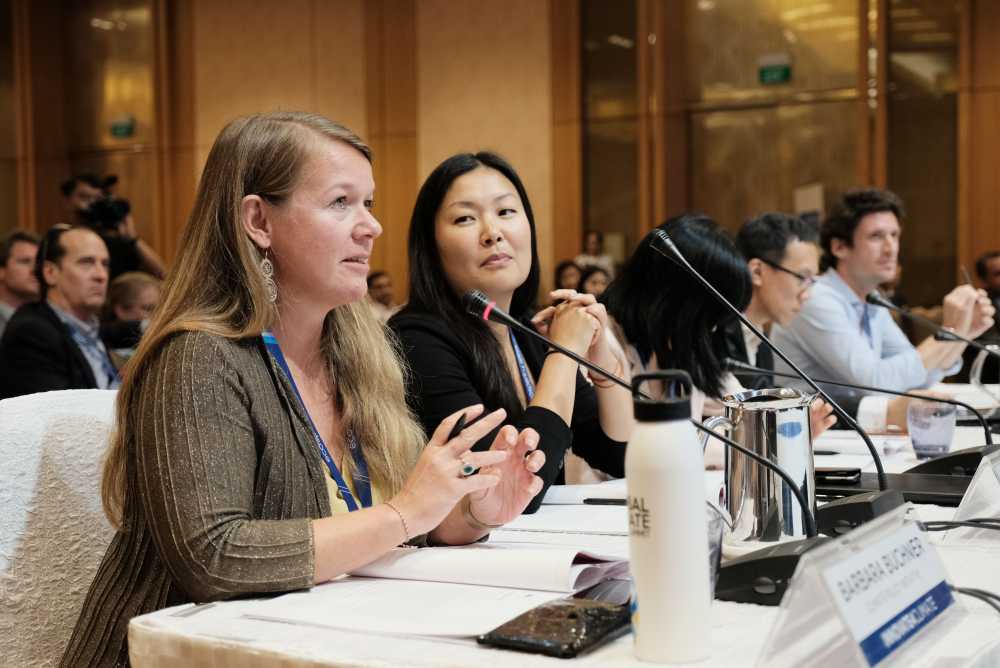
In addition to Amazon's cash infusions for the winning teams, all five teams who reached the finals were awarded the chance to attend a three-day start-up strategy boot camp put on by ImpacTech.
We at Connect4Climate offer our congratulations to all these teams of game-changing innovators, including the hundreds of entrants who didn't make it onto the podium this time around but who clearly have great ideas for a greener future.

Global investors have enthusiastically embraced a national Netherlands 5.98 billion euro green bond designed to fund projects to cope with current and future climate change impacts and an advanced low-carbon economy. Much of the bond focuses on using coastal and river ecosystems as a safeguard for negative climate impacts such as high flood risk. Investors responded to the bond immediately, oversubscribing the issuance by more than 15.2 billion euros.
This green bond is the first globally to employ resilient nature-based solutions certified using the Water Infrastructure Criteria of the Climate Bonds Standard. A consortium of organizations led by the Climate Bonds Initiative, the Alliance for Global Water Adaptation (AGWA), the World Resources Institute (WRI), CDP, and Ceres launched water resilience bonds criteria in May 2018 to inform investors about the climate risks and solutions embedded in the green bonds market. Globally, the green bonds market reached about 168 billion USD in 2018.
Niels Vlaanderen, Policy Advisor for International Affairs at the Department of Infrastructure and Water Management for the Netherlands, commented: “We realized that we needed new solutions — automatically building flood dykes higher was no longer a sustainable solution. We had to change a system we had worked with for centuries and broaden our goals. We must future-proof our country by incorporating cultural and ecological values into our adaptive decision making.”
According to John Matthews, Executive Director of the Alliance for Global Water Adaptation and lead author of the Water Infrastructure Green Bonds Criteria, “For the past thousand years, the Dutch have reclaimed land from the sea. Today, the sea and their rivers are growing higher in a country where half of the country is already below sea level. With this bond issuance, the national government is signaling to investors the scope of the financing needed to adjust to climate change — and how we must link economies and ecosystems together to secure a joint future in a shifting climate.”
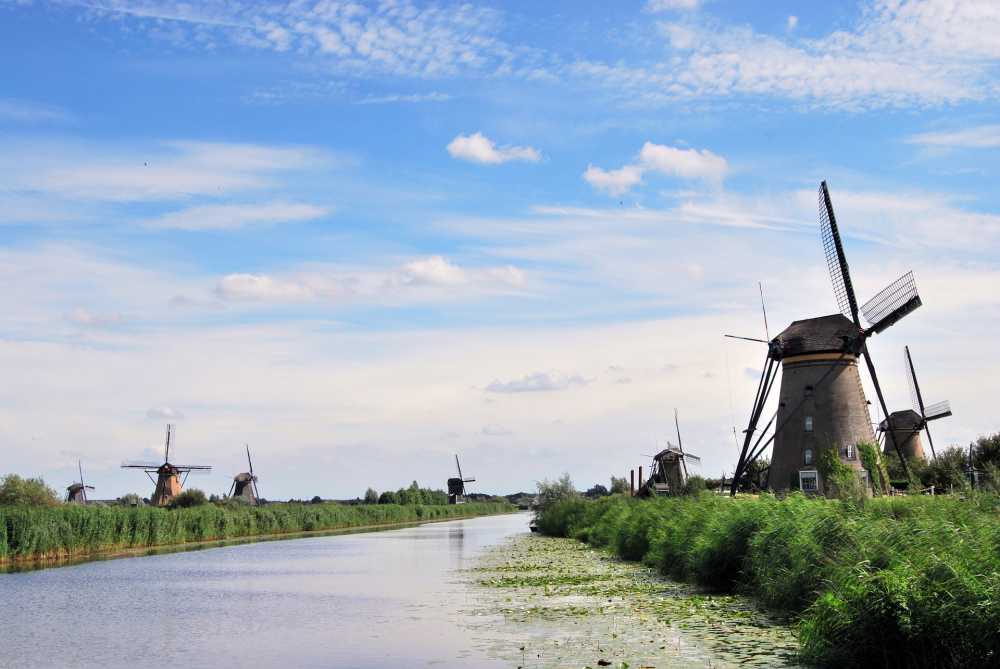
The bond also plays a role in sustainable development according to Henk Ovink, Special Envoy for International Water Affairs, Kingdom of The Netherlands Sherpa to the UN/WB High Level Panel on Water, adding, “This green bond is spot on, aimed at creating added values across the board of the sustainable development goals, leveraging investments for social, cultural, economic and environmental needs and challenges. Using water as leverage to catalyze transformative climate action.”
Justine Leigh-Bell, Deputy CEO at Climate Bonds Initiative (CBI) in London, stated, “Resilience is a powerful new target for investment. The Netherlands has just shown that investors are eager to see policymakers investing in long-term resilience and in working with rather than against nature. Using the Water Infrastructure Criteria rewards issuers and investors together, providing market and citizen confidence for innovative approaches such as nature-based solutions to flood risks.”
Niels Vlaanderen continued, “In Dutch, we say, ‘Als er één schaap over de dam is, volgen er meer,’ or ‘We need only a few to lead.’ Indeed, this bond is the beginning of a very promising area where we expect large funding requirements in the near future. We have proven that the Netherlands can shift strategies to prepare for a changing climate. With our room for the river projects, we have shown that we can combine flood protection and social values through nature-based solutions.”
The benefits of this bond are not limited to at-risk communities and ecosystems. The Netherlands’ Minister of Finance, Wopke Hoekstra, stated, “Our aim is to give an extra boost to the Dutch green capital market through the issuance of the Green Bond.”
The green bond finances low-carbon projects (renewable energy, energy efficiency, clean transportation). Perhaps the most innovative aspects of the bond, however, are projects designed to help the Netherlands adjust to climate change adaptation through sustainable water management, particularly the use of nature-based solutions and green infrastructure approaches for reducing increasing flood risks in coastal and low-lying areas.
Banner and thumbnail images courtesy of, respectively, Michael Gaida and Andželina Hanke from Pixabay.

Following a successful launch last year, TRANSITION Forum returns to Monaco on 26 and 27 June to accelerate the transition to a low-carbon future through investment and collaborative climate action. Under the High Patronage of His Serene Highness Prince Albert II, TRANSITION mobilizes a multi-disciplinary community of global business leaders, policymakers, investors, innovators, scientists and members of civil society to find concrete solutions for humans to prosper while preserving our planet.
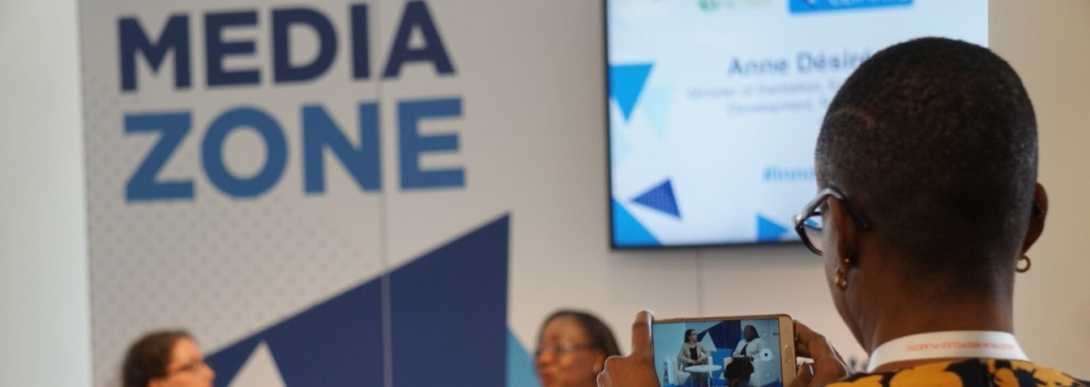
On June 4, the World Bank Group's third annual Innovate4Climate conference will convene in Singapore to brainstorm bold new strategies for financing eco-friendly development across the planet. Climate champions from the spheres of business, policy, banking and tech will pool their expertise to tackle pressing topics such as sustainable cooling and efficient battery storage.
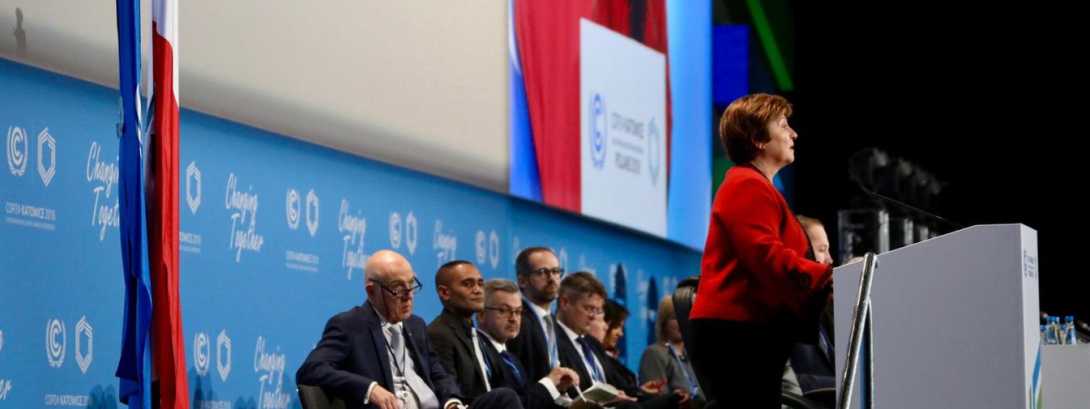
 “Climate change is an existential threat to the world’s poorest and most vulnerable. These new targets demonstrate how seriously we are taking this issue, investing and mobilizing $200 billion over five years to combat climate change. We are pushing ourselves to do more and to go faster on climate and we call on the global community to do the same. This is about putting countries and communities in charge of building a safer, more climate-resilient future.”
“Climate change is an existential threat to the world’s poorest and most vulnerable. These new targets demonstrate how seriously we are taking this issue, investing and mobilizing $200 billion over five years to combat climate change. We are pushing ourselves to do more and to go faster on climate and we call on the global community to do the same. This is about putting countries and communities in charge of building a safer, more climate-resilient future.”


 “There are literally trillions of dollars of opportunities for the private sector to invest in projects that will help save the planet. Our job is to go out and proactively find those opportunities, use our de-risking tools, and crowd in private sector investment. We will do much more in helping finance renewable energy, green buildings, climate-smart agribusiness, urban transportation, water, and urban waste management.”
“There are literally trillions of dollars of opportunities for the private sector to invest in projects that will help save the planet. Our job is to go out and proactively find those opportunities, use our de-risking tools, and crowd in private sector investment. We will do much more in helping finance renewable energy, green buildings, climate-smart agribusiness, urban transportation, water, and urban waste management.”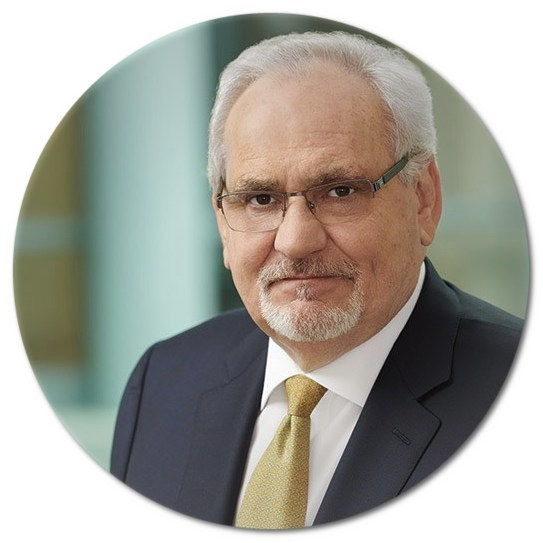

 In Energy: Support the generation and integration of 36 GW of renewable energy and 1.5 million GWh equivalent of energy savings through efficiency improvement;
In Energy: Support the generation and integration of 36 GW of renewable energy and 1.5 million GWh equivalent of energy savings through efficiency improvement;
 In Cities: Help 100 cities achieve low-carbon emissions cycles, resilient urban planning, and transit-oriented development;
In Cities: Help 100 cities achieve low-carbon emissions cycles, resilient urban planning, and transit-oriented development;
 In Food and Land-Use: Increase integrated landscape management in up to 50 countries, covering up to 120 million hectares of forests.
In Food and Land-Use: Increase integrated landscape management in up to 50 countries, covering up to 120 million hectares of forests.
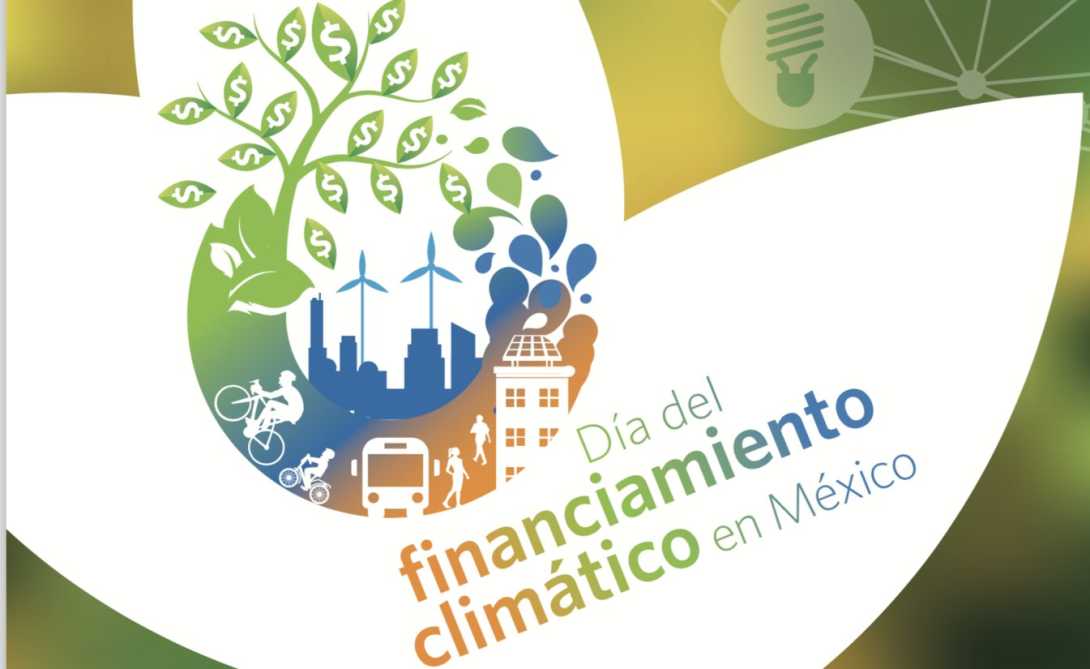
The “Climate Finance Day in Mexico” (September 18, 2018) is an event with two primary objectives. First, it aims to facilitate a space for multi-stakeholder dialogue so that people interested in mitigation and adaptation to climate change can share their experiences on allocation, access, management, and mobilization of finance to accelerate climate action in the country. Second, it looks to identify challenges and opportunities that can then be translated into a mobilization route that allows the country to implement actions to comply with the commitments that have been established at the national and international level in the matter.
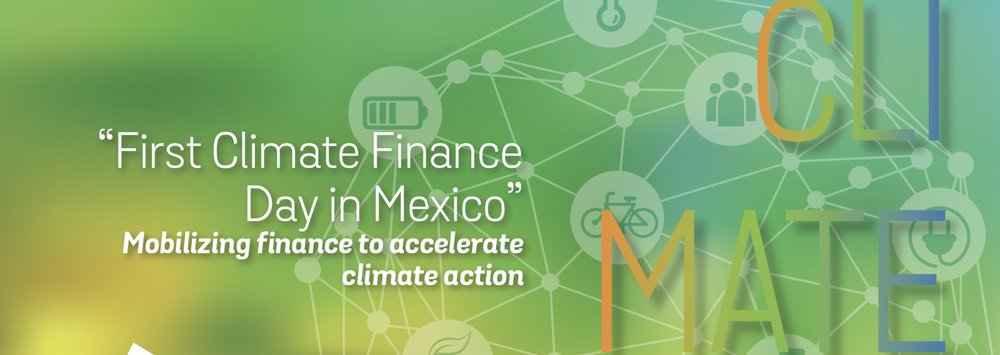
Context
At the international level, various multi-stakeholder dialogues have been held to accelerate climate action, such as the One Planet Summit convened by French President Emmanuel Macron, which seeks to promote collaboration to achieve the assurances of the Paris Agreement, of which Mexico is Signatory and member of the ratification.
Mexico is in the process of government transition, which represents an opportunity to strengthen climate action. Thus, this event aims to generate a dialogue between representatives of the current and future government, with other stakeholders also interested in the subject.
Several initiatives and actions involving the same subject are already taking place and generating different spaces for dialogue and exchange is necessary to achieve the country’s goals. In May and June, several multi-stakeholder dialogues were held to identify challenges and recommendations that various actors propose on mobilizing finance to address climate change. Such challenges and recommendations are the basis for the integration of the event’s agenda.
Thematic

 Strengthen public policies for the effective transition towards a low- carbon, climate-resilient economy;
Strengthen public policies for the effective transition towards a low- carbon, climate-resilient economy;

 Strengthen the sustainability vision of the financial sector;
Strengthen the sustainability vision of the financial sector;

 Scaling up the participation of the private sector in climate actions;
Scaling up the participation of the private sector in climate actions;

 Improve transparency to ensure the effectiveness of climate finance.
Improve transparency to ensure the effectiveness of climate finance.

 Mobilization of climate finance to achieve:
Mobilization of climate finance to achieve:
 The energy transition
The energy transition
 The sustainable mobility
The sustainable mobility
 The creation of sustainable cities
The creation of sustainable cities
 The conservation of nature and adaptation to climate change
The conservation of nature and adaptation to climate changeFormat
[video:https://vimeo.com/277127177]
"We need to decouple our industrial sector, the circular economy is the operating system we need" - Martin Stuchtey, Founder and Managing Partner, Systemiq.
